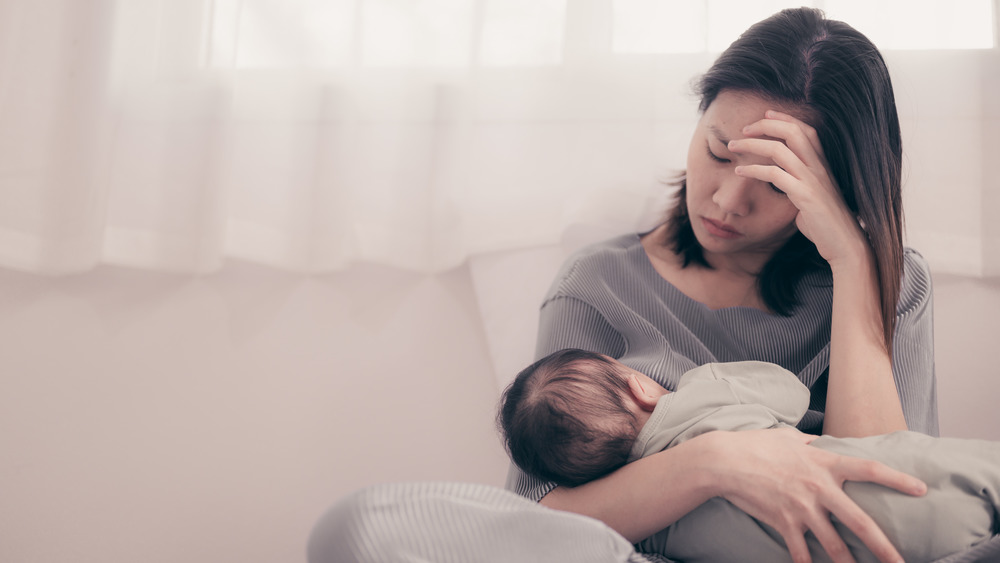Chrissy Teigen's Take On Baby Formula Has People Talking
Model and cookbook author Chrissy Teigen recently opened up about her past struggles with breastfeeding, urging society to normalize baby formula. In a series of tweets, she revealed that she felt guilt and shame in the past for not being able to produce enough breast milk for her children and having to use formula instead.
"I absolutely felt way more shame having to use formula because of a lack of milk from depression and whatnot," Teigen tweeted. She also revealed the stress and pressure she felt to pump more breast milk than she was physically able to and the sadness that followed that experience.
Teigen made a point of acknowledging that breastfeeding and using formula are both valid options, telling her followers that no matter what they decide to do, their children will be okay. While breast milk contains antibodies that can help infants fight off infection, formula is also a healthy alternative, according to WebMD. Ultimately, it's up to parents to decide what is best for their children.
Chrissy Teigen isn't alone in her struggles with breastfeeding
Chrissy Teigen, however, is not alone in her struggles with breastfeeding and mental health. Many women who suffer from postpartum depression can have difficulty breastfeeding. Postpartum depression, or PPD, is a type of clinical depression that occurs after childbirth. Around one in eight women experience symptoms of PPD, according to the Centers for Disease Control and Prevention. Having difficulty breastfeeding can make women with PPD feel stressed and hopeless.
"For women who are suffering from postpartum depression, having difficulty breastfeeding can feel like a life-and-death matter," Dr. Tamar Gur, a women's health expert and reproductive psychiatrist at the Ohio State University Wexner Medical Center, told Self. "They feel that they have completely failed as a mother." Of course, this feeling of failure and sense of hopelessness is the depression talking. That is why it is important for people suffering from PPD to talk to a mental health professional. PPD is a temporary condition that will only improve with treatment.


